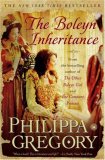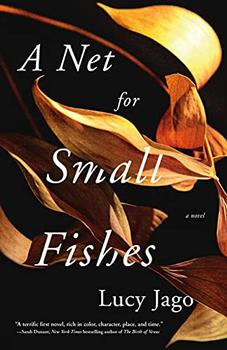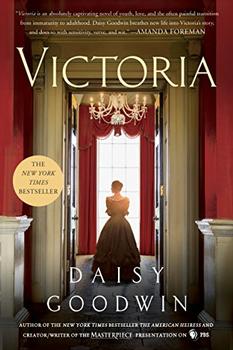Summary | Excerpt | Reading Guide | Reviews | Beyond the book | Read-Alikes | Genres & Themes | Author Bio

Gregory vividly brings Henry VIII's court, with its intense intrigues, politics, and passions, to life though the lives, and deaths, of his fourth, fifth and sixth wives.
THREE WOMEN WHO SHARE ONE FATE: THE BOLEYN INHERITANCE
ANNE OF CLEVES
She runs from her tiny country, her hateful mother, and her abusive brother to a throne whose last three occupants are dead. King Henry VIII, her new husband, instantly dislikes her. Without friends, family, or even an understanding of the language being spoken around her, she must literally save her neck in a court ruled by a deadly game of politics and the terror of an unpredictable and vengeful king. Her Boleyn Inheritance: accusations and false witnesses.
KATHERINE HOWARD
She catches the king's eye within moments of arriving at court, setting in motion the dreadful machine of politics, intrigue, and treason that she does not understand. She only knows that she is beautiful, that men desire her, that she is young and in love -- but not with the diseased old man who made her queen, beds her night after night, and killed her cousin Anne. Her Boleyn Inheritance: the threat of the axe.
JANE ROCHFORD
She is the Boleyn girl whose testimony sent her husband and sister-in-law to their deaths. She is the trusted friend of two threatened queens, the perfectly loyal spy for her uncle, the Duke of Norfolk, and a canny survivor in the murderous court of a most dangerous king. Throughout Europe, her name is a byword for malice, jealousy, and twisted lust. Her Boleyn Inheritance: a fortune and a title, in exchange for her soul.
The Boleyn Inheritance is a novel drawn tight as a lute string about a court ruled by the gallows and three women whose positions brought them wealth, admiration, and power as well as deceit, betrayal, and terror. Once again, Philippa Gregory has brought a vanished world to life -- the whisper of a silk skirt on a stone stair, the yellow glow of candlelight illuminating a hastily written note, the murmurs of the crowd gathering on Tower Green below the newly built scaffold. In The Boleyn Inheritance Gregory is at her intelligent and page-turning best.
Gregory describes The Boleyn Inheritance as her current favorite book out of all that she's written. Many of her loyal readers will likely agree. If you enjoy well researched historical fiction and have yet to discover Philippa Gregory a good place to start would be with The Boleyn Inheritance or any other of her Tudor series (such as The Constant Princess also featured at BookBrowse); all, except The Boleyn Inheritance, are available in paperback...continued
Full Review
(943 words)
This review is available to non-members for a limited time. For full access,
become a member today.
(Reviewed by BookBrowse Review Team).
Philippa Gregory was born in Kenya in 1954, and educated in England gaining a BA degree in history from the University of Sussex and a PhD in 18th century literature from Edinburgh University. For a time she worked as a journalist but took to full time writing after the success of her first novel Wideacre, which was written as she completed her PhD. It was the first of a trilogy (1987-1990) including The Favored Child and Meridon. This trilogy was followed by Earthly Joys (1998) and Virgin Earth (1990) set in the English civil war. After this she wrote a number of stand-alone novels dipping into a variety of genres leaning to romance before truly hitting her stride in 2001 with the publication of The Other Boleyn Girl, ...
This "beyond the book" feature is available to non-members for a limited time. Join today for full access.

If you liked The Boleyn Inheritance, try these:

by Lucy Jago
Published 2022
Wolf Hall meets The Favourite in Lucy Jago's A Net For Small Fishes, a gripping dark novel based on the true scandal of two women determined to create their own fates in the Jacobean court.

by Daisy Goodwin
Published 2017
Drawing on Queen Victoria's diaries, which she first started reading when she was a student at Cambridge University, Daisy Goodwin—creator and writer of the new PBS/Masterpiece drama Victoria and author of the bestselling novels The American Heiress and The Fortune Hunter—brings the young nineteenth-century ...